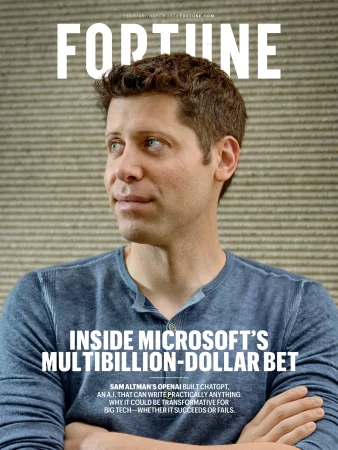Cast your mind back to June 2020…
We were in the midst of the worst global pandemic for decades, and we were anxious, lonely and uncertain.
So it’s not surprising that headlines like this from the Smithsonian came about: New Research Suggests We’re Living in Historically Unhappy Times. It rang true.
But, really? The most unhappy time in history? What about 1800, when 1 in 3 children didn’t survive to the age of five? And 1900, when half of us couldn’t vote? Or the Great Depression of the 1920s, when a quarter of the working age population were out of a job?
I’d argue that in 2020, we were possibly less happy than 2019. But historically unhappy — definitely not.
So why did we fall for the overblown headline?
Well, a big clue lies in a particular aspect of our psychology — the tendency to give undue weight to the messenger.
The messenger effect: a powerful bias
The messenger effect has long been known to have significant impacts. A classic study — one of the first in the field — dates back to 1951, from Carl Hovland and Walter Weiss at Yale University. They asked 223 people to indicate their view on a topic, from atomic submarines to the future of cinema.
Five days later, the respondents were given an article, laying out a clear case against their opinion on the topic. Everyone received the same argument.

However, some participants were told the article came from a high-credibility source — such as physicist Robert J Oppenheimer for atomic issues, or Fortune magazine for cinema-going. Others were told the article came from low-credibility source, such as a cheap magazine.
Participants were then asked whether they had changed their minds.
Even though everyone received the same argument the supposed source had a big effect on its persuasiveness. After reading articles from high-credibility sources, 23% of people changed their view. But for the low-credibility sources, the rate was just 7%.
So perhaps, if the “historically unhappy” story had come from a less authoritative source than the Smithsonian, we’d be over it by now.
Messengers affect us all
There’s further academic evidence to suggest that messengers come in to play for all of us, even in our own fields of expertise. One study comes from economist Ha-Joon Chang at Cambridge University in 2019. He looked at the effect of message source on the extent to which experts agreed with the message.
Economists from 19 different countries were shown statements, some of which apparently came from mainstream economics sources, others from non-mainstream sources. Some were credited to no source at all. Participants — all experts in the topic — indicated how much they agreed with the statements.
Interestingly, 82% of economists reported that when evaluating a statement, they should only pay attention to the content. They believed they should — and would — rely on their experience and professional judgement.
However, the results showed that changing the source attribution from mainstream to non-mainstream reduced agreement with the statements by 7.3%. And removing sources altogether reduced agreement by 11.3%.
The study clearly shows how the information source unconsciously influences how we interpret content. The messenger can be more important than what is said, even when we’re well-informed on the subject matter.
This explains why we latched on to the Smithsonian story so comfortably — we instinctively trust in the expertise of a prestigious, learned institution.
What can you do?
The messenger effect suggests that people have a tendency to place too much emphasis on who says something and not enough on the logic of the argument or the facts being marshalled.
I think our industry is as guilty as any of being swayed by the messenger effect. We give famous names and authoritative sources too much benefit of the doubt.
Think about the Advertising Association and their claim that trust in ads is declining. Or Jim Stengel and his research that purpose drives stellar business results. Both are easily debunked by a cursory glance at their logic and data sets. But, for a while, their thinking held sway because of a focus on the authority of who was making the argument.
The messenger effect suggests we need to apply a bit more critical thinking before swallowing headlines whole — especially when we admire the source.
And, in answer to the question “whose job is it to make us happier”, for me, the answer is “no-one’s”. Because we’re not historically unhappy.
If you don’t believe me check out the data set that the Smithsonian used to make their claim, the Hedonometer — which is based on US Twitter sentiment analysis.
Now, there are plenty of issues with using American twitter analysis to make claims about British happiness levels. But even ignoring that, you can see the data provides no proof for “historical” levels of unhappiness. After all, the data set only stretches back to 2009.
On top of that the unhappiness that the Smithsonian reported on was transient. The happiness scores plummeted in June 2020 but had recovered within a month or so. Hard to say that makes for “unhappy times”, more an unhappy moment.
And hopefully, hearing that will make you happier.
Richard’s new book on applying behavioural science to marketing, The Illusion of Choice, is now available to buy.
Featured image: PNW Production / Pexels
































